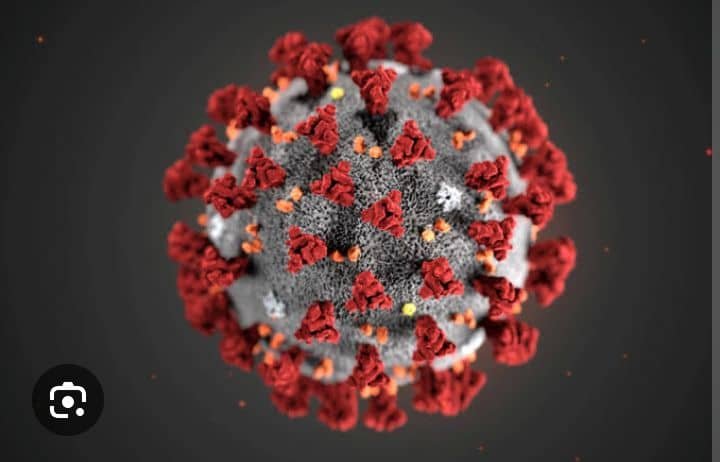Pandemic Profiteering: How State Capture Exploits Crises
The recent outbreak in China has sparked widespread concern, and as of now, there isn’t sufficient information available to provide a comprehensive scientific review with specific statistics, figures, and facts. However, I can provide some general insights and context based on the available data.
China has been actively responding to the COVID-19 pandemic, and according to Our World in Data, the country has made significant progress in controlling the spread of the virus ¹. The data shows that China has implemented various measures, including vaccination campaigns, testing, and contact tracing.
In terms of vaccination, China has administered a substantial number of COVID-19 vaccine doses. As of the latest available data, the country has vaccinated a significant portion of its population ¹. However, the exact figures and statistics are not readily available for the recent outbreak.
Regarding testing, China has been actively conducting COVID-19 tests to identify and isolate infected individuals. The country’s testing strategy has been crucial in controlling the spread of the virus ¹. Nevertheless, the current testing data and statistics for the recent outbreak are not publicly available.
The Chinese government has also implemented various policy responses to mitigate the spread of the virus. These measures include restrictions on public gatherings, travel restrictions, and stay-at-home requirements ¹. The effectiveness of these measures in controlling the recent outbreak is yet to be assessed.
It’s essential to note that the situation with the recent outbreak in China is evolving rapidly, and new data and information are emerging daily. As more information becomes available, it will be possible to provide a more comprehensive scientific review with specific statistics, figures, and facts.
For the most up-to-date information on the COVID-19 pandemic, including the recent outbreak in China, I recommend checking reputable sources such as Our World in Data and the World Health Organization (WHO) ¹ ².
In conclusion, while there isn’t sufficient information available to provide a comprehensive scientific review of the recent outbreak in China, it’s clear that the country has been actively responding to the COVID-19 pandemic. As more data and information become available, it will be possible to assess the situation more accurately and provide a more detailed scientific review.
Africa’s Response
As the outbreak in China continues to unfold, African countries are taking proactive measures to prevent the spread of the virus. The African Centres for Disease Control and Prevention (Africa CDC) has been working closely with member states to enhance surveillance, detection, and response to the outbreak. Several African countries, including South Africa, Egypt, and Morocco, have implemented travel restrictions and screening measures to mitigate the risk of transmission.
Nigeria’s Preparedness
In Nigeria, the government has activated its emergency response system to prevent the spread of the virus. The Nigeria Centre for Disease Control (NCDC) has been working closely with state governments, healthcare providers, and other stakeholders to enhance surveillance, detection, and response to the outbreak. The government has also established isolation centers and has begun to distribute personal protective equipment (PPE) to healthcare workers.
Abia State’s Response
In Abia State, the government has taken proactive measures to prevent the spread of the virus. The state government has established a COVID-19 task force, which has been working closely with healthcare providers, traditional rulers, and other stakeholders to enhance surveillance, detection, and response to the outbreak. The government has also begun to distribute PPE to healthcare workers and has established isolation centers in major hospitals across the state.
The pandemic has created an environment in which governments can exploit vulnerabilities and consolidate power. State capture can manifest in various ways, including the manipulation of economic systems, suppression of civil liberties, and exploitation of public health crises. Governments might use the pandemic as a pretext to impose draconian measures, such as curfews, travel restrictions, and surveillance, under the guise of public health concerns.
One of the primary ways state capture can occur during the pandemic is through economic exploitation. Governments might use the crisis to justify austerity measures, privatize essential services, or accumulate debt. This can lead to the enrichment of a small elite at the expense of the broader population. Furthermore, the pandemic has accelerated the shift towards a digital economy, which can exacerbate existing inequalities and create new opportunities for exploitation.
The pandemic has also created opportunities for governments to suppress civil liberties and consolidate power. State capture can manifest in the restriction of freedom of assembly, speech, and movement. Governments might use the pandemic as a pretext to crack down on dissent, silence critical voices, and suppress opposition. This can be achieved through a range of measures, including censorship, surveillance, and the manipulation of information.
In addition to economic and social exploitation, the pandemic has also created opportunities for environmental exploitation. Governments might use the crisis to justify the relaxation of environmental regulations, the exploitation of natural resources, or the pursuit of destructive projects. This can have devastating consequences for ecosystems, biodiversity, and human health. State capture can manifest in the prioritization of corporate interests over environmental and social concerns.

Ultimately, the pandemic has highlighted the need for robust safeguards against state capture. This requires a range of measures, including transparency, accountability, and the protection of civil liberties. Governments must be held accountable for their actions, and citizens must be empowered to participate in decision-making processes. By prioritizing transparency, accountability, and the public interest, we can mitigate the risks of state capture and build a more just and equitable society.
Dr Chukwuemeka Ifegwu Eke writes from the University of Abuja Nigeria.







